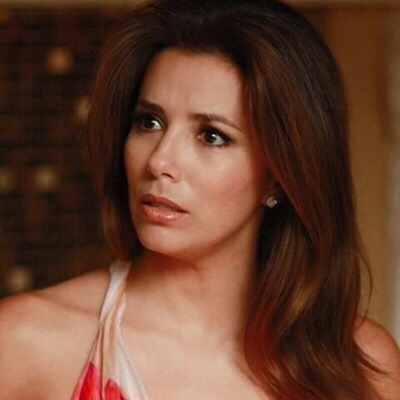
#GABY SOLIS DIED SERIES#
Although (my character is) dead so it would have to be flashbacks,” he said, recalling that before the series ended in 2012, he was in an episode about Mike’s funeral and in another when he came back as a ghost.
#GABY SOLIS DIED MOVIE#
Meanwhile, Denton - who has reunited on-screen multiple times with his “Desperate Housewives” wife Teri Hatcher, including in Hallmark’s 2021 movie “A Kiss Before Christmas” - is also game for a reboot, telling Parade in February that he loves the idea but writers would have to get creative to bring him back into the fold. “I could be like one of the parents of like the younger cast or something.” “I think they could definitely reboot ‘Desperate Housewives,'” he said. In April, he told Parade magazine that although he hadn’t heard anything official about a reboot, he has a pitch for producers if they’re open to it. Metcalfe has also given some thought to what his character might be doing.

“She’d be an influencer for sure,” she said. On June 2, the actress also told Access Hollywood, while promoting her directorial debut in the new movie “Flamin’ Hot,” that she has a good idea of what her character would be doing now. In a Deadline interview published on June 3, 2023, Longoria said that she’d love to reunite the “Desperate Housewives” cast and return to her old character, saying she would “be the first to sign up for a reboot.” ‘From Prodigy to Pedagogue: Nancy Weir’s Life in Pianism.’ In Wendy Lorenz, Philip Gearing and Laurence Lepherd, eds, Proceedings of the 2nd Australian National Piano Pedagogy Conference (Toowoomba: Music Department, University of Southern Queensland, 1996), pp.GettyJesse Metcalfe and Eva Longoria in 2009 Above all, she integrated music as a practice into the everyday lives of Queenslanders. In Queensland Nancy Weir escaped the boredom of the long distance concert pianist, and in so doing developed a unique way of being a pianist in the Australian context: she brought a deep knowledge of European traditions and the highest standards of performance, but always responded to local conditions. She focused not simply on training in repertoire and technique, but worked tirelessly to mould an entire generation of Queensland musicians and audiences through the Students’ Symphonic Safaris and similar initiatives. Weir’s concept of the role of the teacher was a very broad one, and drew on her own very diverse experience of teaching styles in Australia and Europe. It then examines the way in which she forged a career which combined performance with pedagogy.

This paper looks first at the pianistic traditions in which Nancy Weir was trained, and the way in which her prodigious talent shaped expectations of her future career. Nonetheless Weir continued her dual career as a performer and pedagogue. From 1946, Weir had begun to experience hearing problems when these were eventually traced to a tumour of the acoustic nerve, she underwent a lifesaving operation which left her totally deaf in one ear. In the early 1950s Weir returned to Australia, where she pursued an active performing career as well as teaching at the Melbourne University Conservatorium and then the Queensland Conservatorium of Music. She also made successful appearances at the London Proms and the Wigmore Hall until the outbreak of World War II, when Weir was 24, changed the course of her career. In London, she continued to attract attention by winning major scholarships and prizes. She subsequently studied at the Royal Academy of Music with Harold Craxton, and then had lessons with Tobias Matthay.

After studying with Ada Corder, she was accepted as a student by Schnabel at the age of 14. Australian pianist Nancy Weir (1995-2008) achieved early fame as a child prodigy in Victoria and New South Wales.


 0 kommentar(er)
0 kommentar(er)
